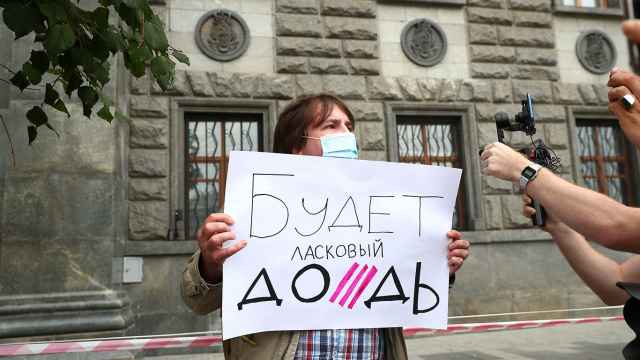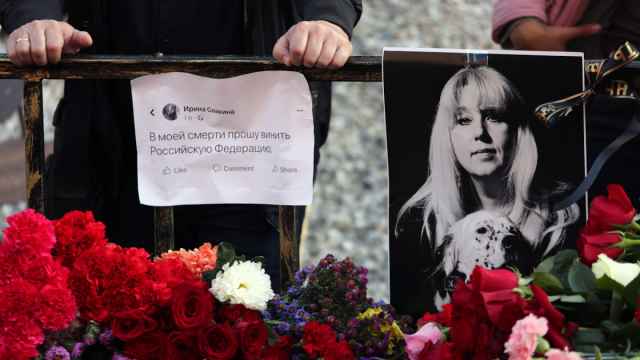Russia has added independent investigative outlet Proekt to its registry of “undesirable” organizations, a designation that bans the outlet’s activities and puts its staff at risk of jail time, and labeled several of its journalists “foreign agents.”
Founded in 2018, Proekt, one of the country's last independent news outlets, has been behind several high-profile investigations into hidden wealth and corruption among Russia’s elites. Police raided the homes of its chief editor Roman Badanin and journalist Maria Zholobova last month while deputy editor-in-chief Mikhail Rubin was detained after they announced a new report into Interior Minister Vladimir Kolokoltsev’s alleged hidden wealth.
The Prosecutor General’s office added Proekt to its “undesirable foreign NGOs” registry Thursday, saying the outlet’s work threatens “the foundations of the constitutional order and security of the Russian Federation.”
Russian law requires the newly declared “undesirable” organizations to disband.
Individuals found guilty of organizing an “undesirable” organization's work in Russia can face up to six years of prison, while participants can face up to four years. Organizing fundraising for an “undesirable” group is punishable by up to five years.
The designation also bans other outlets from linking to Proekt’s materials or directly quoting them.
Russian authorities have now blacklisted 40 foreign groups as “undesirables” in line with the 2015 law that rights groups see as part of the Kremlin’s efforts to stifle dissent.
President Vladimir Putin last month signed into law a ban on Russians from cooperating with “undesirable” groups anywhere in the world.
Badanin, as well as Proekt journalists Olga Churakova, Yulia Lukyanova and Maria Zheleznova, were also added to Russia’s registry of “foreign agents” by the Justice Ministry on Thursday.
The Justice Ministry has also added Open Media news website editor-in-chief Yulia Yarosh and its deputy editor-in-chief Maxim Glikin, as well as Radio Svoboda correspondent Elizaveta Maetnaya, to its “foreign agents” list.
Individuals labeled “foreign agents” are subject to rigorous financial auditing requirements with steep fines for errors and must also include boilerplate text stating their designation on everything they publish, including social media posts.
Journalists at media outlets previously labeled “foreign agents” have also reported seeing advertising revenue dry up and sources refuse to talk to them.
A Message from The Moscow Times:
Dear readers,
We are facing unprecedented challenges. Russia's Prosecutor General's Office has designated The Moscow Times as an "undesirable" organization, criminalizing our work and putting our staff at risk of prosecution. This follows our earlier unjust labeling as a "foreign agent."
These actions are direct attempts to silence independent journalism in Russia. The authorities claim our work "discredits the decisions of the Russian leadership." We see things differently: we strive to provide accurate, unbiased reporting on Russia.
We, the journalists of The Moscow Times, refuse to be silenced. But to continue our work, we need your help.
Your support, no matter how small, makes a world of difference. If you can, please support us monthly starting from just $2. It's quick to set up, and every contribution makes a significant impact.
By supporting The Moscow Times, you're defending open, independent journalism in the face of repression. Thank you for standing with us.
Remind me later.






